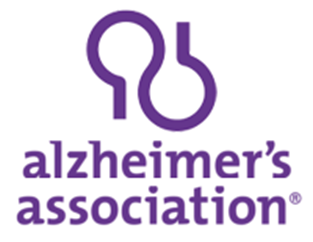Supporting Brain Health with the Alzheimer’s Association
 Alzheimer’s disease is increasingly recognized as a public health crisis. According to the former U.S. Surgeon General and CDC Director, Dr. David Satcher, “Alzheimer’s is the most under-recognized threat to public health in the 21st Century.” Communities around the country, including Allegheny County, are taking a public health approach to this disease due to the large burden, major impact, and opportunity for intervention.
Alzheimer’s disease is increasingly recognized as a public health crisis. According to the former U.S. Surgeon General and CDC Director, Dr. David Satcher, “Alzheimer’s is the most under-recognized threat to public health in the 21st Century.” Communities around the country, including Allegheny County, are taking a public health approach to this disease due to the large burden, major impact, and opportunity for intervention.
The burden is large: The number of Americans living with Alzheimer’s disease is projected to increase from five million to 14 million by 2050. Not only is it the most expensive disease in the US, it also accounts for more deaths each year than breast cancer and prostate cancer combined.
The impact is major: Alzheimer’s impacts more than just the individual diagnosed; families, healthcare providers, and community members are all affected by the emotional, physical and dollar costs of this disease. Additionally, 95% of people living with Alzheimer’s and other dementias have at least one other chronic condition. Dementia can complicate management of co-occurring conditions such as heart disease, diabetes, or stroke.
The opportunity for intervention: Communities are focusing on early detection and diagnosis, reducing risky health behaviors, collecting and using surveillance data, developing workforce competencies, and mobilizing partnerships such as our Live Well Allegheny partner, Alzheimer’s Association of Pittsburgh.
To reduce health behaviors that increased the risk for dementia, the Alzheimer’s Association is spreading awareness of the heart-brain connection. The heart and brain are closely linked — harm or damage to one can affect the other. For example, when blood pumps to the brain, there is a complex network of blood vessels that delivers nutrients and oxygen to brain cells. High blood pressure can damage, narrow, and scar these blood vessels over time. When this happens, parts of the brain may become damaged due to lack of oxygen and nutrients and this can result in cognitive/brain decline. So, high blood pressure increases the risk for both heart disease and dementia. also increases your risk for Similarly, obesity increases the risk of both heart disease and brain’s health.
While there is no way to definitively prevent Alzheimer’s disease, adopting key lifestyle habits can reduce the risk of illness of the brain and the heart.
What ten lifestyle habits help maintain brain health?
- Participate in regular cardiovascular exercise
- Education – keep learning
- Quit smoking
- Manage blood pressure and diabetes
- Reducing risk of falls
- Eat a healthy and balanced diet
- Get enough sleep
- Manage mental health and stress
- Remain socially engaged
- Challenge your mind with play and games
For more information on efforts in our community, please contact: Sara Murphy at smurphy@alz.org. For additional information and support please contact the Alzheimer’s Association’s 24/7 helpline at 1.800.272.3900.
For resources about Alzheimer’s and the heart-brain connection, please view:
https://www.alz.org/media/Documents/healthy-brain-initiative-protecting-heart-and-brain.pdf
https://www.alz.org/help-support/brain_health/10_ways_to_love_your_brain
https://alz.org/alzheimers-dementia/facts-figures
https://www.alz.org/professionals/public-health/the-public-health-approach
https://www.alz.org/professionals/public-health/core-areas/brain-health-risk-reduction
